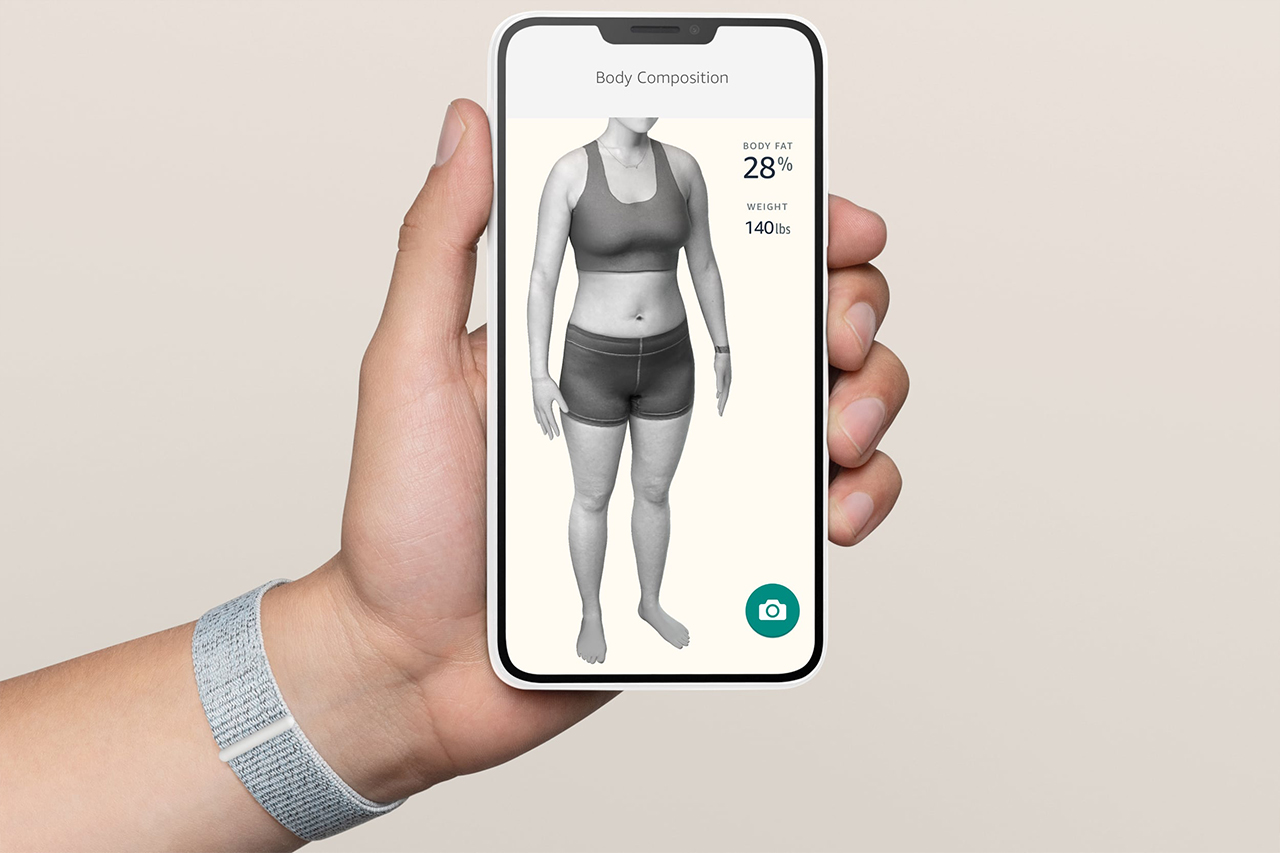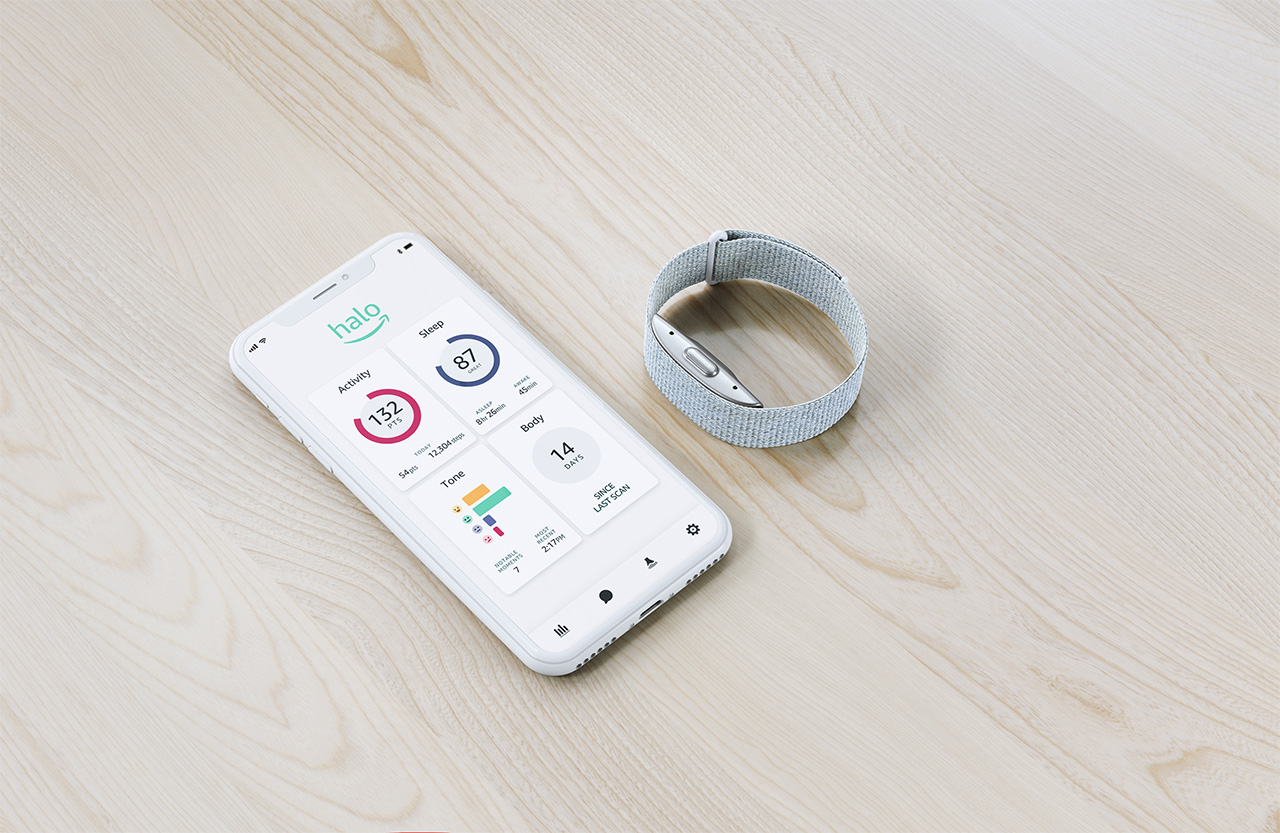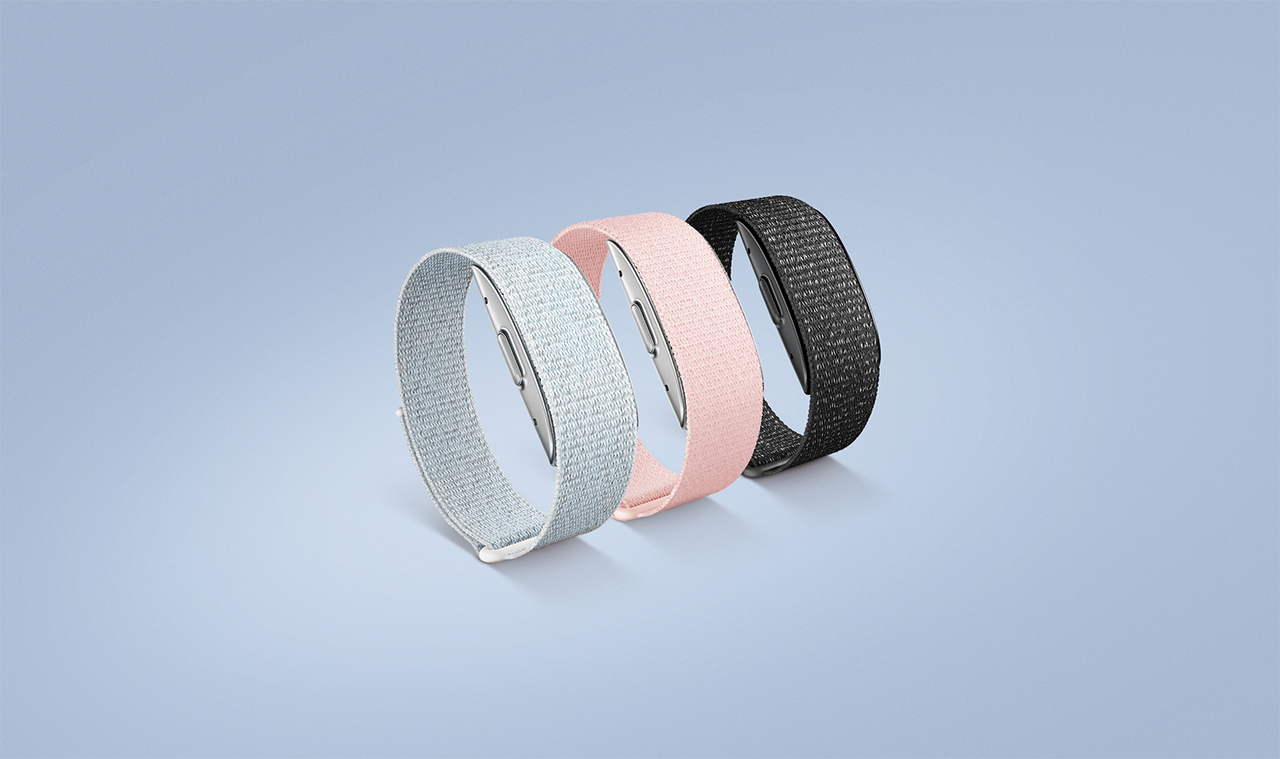
Amazon announced a new fitness band and subscription platform with some innovative new features that also bring significant privacy concerns.
The new tracker, called ‘Halo,’ is little more than a wristband with a variety of sensors attached. It doesn’t have a screen like an Apple Watch or Fitbit, which indicates Amazon has a different aim here than traditional fitness trackers. Halo offers several of the same basic tracker features seen elsewhere, such as cardio and sleep tracking. There are also ‘labs’ developed by partners that act like small challenges designed to improve health habits like meditation, sleep or starting basic exercise routines.
However, the standout additions here are 3D body fat scans and voice tone tracking. Body scans use your smartphone’s camera to take four pictures of you — one from the front, one from the back and one from each side. The Halo app uploads these scans to Amazon’s servers, where the company combines them into a 3D scan of your body. Amazon says it sends the scan back to your phone and deletes the data of its servers.
Once you have the scan, Halo uses machine learning to analyze the scan and calculate your body fat percentage. Amazon argues body fat percentage is a more reliable indicator of health than either weight or body mass index (BMI). It also claims its machine learning system measures body fat more accurately than smart scales that use bioelectrical impedance to measure body fat. Halo users can adjust a slider in the app to see what their body looks like with more or less body fat.

Halo is available for anyone 13 years of age and up, but the body scan feature is restricted to people 18 or older. The body scan feature sounds like a privacy nightmare, but Amazon promises it’s being careful with user data. The company plans to post a document detailing every type of data it collects, where it’s stored and how to delete it.
Aside from the obvious privacy alarm bells, The Verge points out that, despite the educational and motivational goal of body scans, it could be dangerous for people with body dysmorphic disorder, anorexia or other self-image issues. When asked about those issues, Amazon told The Verge that Halo recommends doing scans once every two weeks. It also prevents the slider from showing dangerously low levels of body fat and includes information about how low body fat can increase risk for certain health problems.
Tone tracking and privacy

Amazon’s Halo band includes a built-in microphone, but it’s not for voice commands. In fact, Alexa isn’t on the device at all. Instead, the microphone listens to your voice throughout the day and generates a report about your emotional state. For users who don’t opt-in, the microphone does nothing.
The system works passively and intermittently listens to your voice. When it listens, it sends audio snippets to your phone where the Halo app analyzes them, looking at pitch, intensity, rhythm and tempo. It compares this against a baseline you create by reading sample text, categorizes ‘notable moments’ and organizes them for users to review. Amazon stressed that voice snippets never get uploaded to servers and are never heard by humans.
Amazon also notes that it modelled the feature on American English, so results may be less accurate for people with an accent.
It’s worth noting that both the tone tracking and body scan features are opt-in and, at least so far, Amazon has been transparent about where the data goes. Further, Amazon made it easy to turn off the features and delete the data. Some other key points about Halo include that the profile is distinct from your Amazon account. It will need individual activation with a second factor like a text message, which prevents others who share your Prime account from getting into it.
Amazon is also limiting how Halo shares data. You can’t integrate it without fitness apps like Apple Health at launch, but data can be shared with third-parties, including some partners like WW (formerly Weight Watchers).
Typical tracking with a twist

Finally, Halo handles the typical tracking people have come to expect from fitness trackers, but handled differently. For example, it tracks cardio fitness, but on a weekly basis instead of daily like most apps. It also counts steps, but users see an abstract fitness score instead of basic step counter.
Halo also has a heart monitor, but it only uses this to distinguish between intense, moderate and light activity. It combines that data to ensure wearers meet a weekly activity target. Instead of hourly stand or step prompts seen on Apple Watch or Fitbit devices, Halo measures how long users remain sedentary and deducts from the weekly activity score if people don’t do much for more than eight hours (excluding sleep). Halo doesn’t proactively alert users to heart conditions nor does it do fall detection.
All in all, Amazon’s Halo band seems like an interesting device. It offers less intrusive hardware than competitors, but also less features. Plus, some may consider the band’s most innovative features to be disturbing. The other thing to consider will be availability. MobileSyrup reached out to Amazon Canada for details about a Canadian release. At the time of writing, Halo wasn’t available on Amazon.ca.
Halo costs $99.99 USD (about $131.45 CAD) but has limited time early access pricing of $64.99 USD ($85.44 CAD). Plus, to get some of Halo’s best features, you’ll need a monthly subscription that costs about $5.25 CAD (it’s not included in Amazon Prime). Considering you can get similar features from competitors without the monthly fee, as well as a more feature-rich tracker, it’s hard to imagine Halo taking off.
Fitbit’s new Inspire 2 tracker, for example, costs $129.95 and includes 12 months free Fitbit Premium, a display and near feature parity with Halo, excluding Amazon’s body scan and tone tracking tech. To me, that seems like a much better purchase. Still, it’s possible Halo will find a niche crowd that appreciates what it does, and Amazon’s new features could push competitors to adopt similar ideas.
MobileSyrup may earn a commission from purchases made via our links, which helps fund the journalism we provide free on our website. These links do not influence our editorial content. Support us here.


